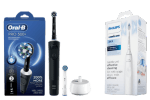Posted by Dr. Taner Cakmak on Tue, 9 Jul 2024
Refugees in Canada have access to dental care through the Interim Federal Health Program (IFHP) and various community services. Learn about the coverage details, application process, and available support to ensure comprehensive dental care for refugees in Canada.

Yes, refugees in Canada do have access to dental care, although the extent and nature of the care they receive can vary. Here are some key points:
- Interim Federal Health Program (IFHP): Refugees in Canada are eligible for health care coverage under the Interim Federal Health Program (IFHP). This program provides limited, temporary coverage for essential and emergency health services, including dental care.
- Dental Services Covered: The IFHP covers certain dental services such as examinations, x-rays, extractions, and emergency dental care. However, routine dental treatments like cleanings, fillings, and orthodontics may not be covered or may have limited coverage.
- Provincial and Territorial Programs: In addition to the IFHP, some provinces and territories in Canada offer additional health care benefits, including dental care, to refugees. The specific services and coverage can vary widely depending on the province or territory.
- Community Health Services: Many communities have health clinics and organizations that provide dental care to refugees, often on a sliding scale or at no cost. These services are typically provided by non-profit organizations, dental schools, or volunteer dental professionals.
- Integration Support: Settlement agencies and refugee support organizations often assist refugees in navigating the health care system, including accessing dental care. These agencies can help refugees understand their entitlements and find providers who accept IFHP or other relevant coverage.
Overall, while refugees in Canada do have access to dental care, the scope of services and ease of access can vary, and additional support may be needed to ensure comprehensive care.
What Covers IFHP Program for Refugees?
The Interim Federal Health Program (IFHP) in Canada provides limited, temporary coverage for essential and emergency health services to eligible beneficiaries, including refugees. Here is a summary of what the IFHP covers:
- Health Care Coverage:
- Basic Coverage: Includes services provided by physicians, nurses, and other health care professionals, diagnostic tests, hospital services, prenatal and maternity care, and mental health care.
- Supplemental Coverage: Similar to what is provided to low-income Canadians, this includes prescription medications, limited vision and dental care, prosthetics, mobility aids, and home care services.
- Dental Services:
- Emergency dental care to relieve pain and infection.
- Basic dental services like exams, x-rays, fillings, extractions, and root canals.
- Other dental treatments may be limited, and routine dental care such as cleanings and orthodontics are generally not covered.
- Prescription Drugs:
- Medications prescribed by a physician or dentist that are necessary for managing acute and chronic conditions.
- Some over-the-counter medications may be covered if prescribed.
- Vision Care:
- Eye exams (when provided by a medical doctor).
- Prescribed eyeglasses or lenses (limited coverage).
- Hospital Services:
- Inpatient and outpatient services.
- Laboratory, diagnostic, and ambulance services.
- Mental Health Services: Coverage for counseling and psychotherapy provided by qualified mental health professionals.
- Home Care and Long-term Care:
- Limited coverage for home care services, such as nursing and personal care.
- Coverage for long-term care services may be available in certain circumstances.
The IFHP aims to provide essential health care services to eligible beneficiaries until they become eligible for provincial or territorial health insurance or until their immigration status is resolved. For detailed information on the specific services and coverage, you can refer to the official IFHP Policy Guide or contact Immigration, Refugees and Citizenship Canada (IRCC) directly.
How Can I Apply to a Dental Clinic as a Refugee for Dental Treatment?
Applying for dental treatment at a dental clinic as a refugee under the Interim Federal Health Program (IFHP) involves several steps. Here’s a guide to help you through the process:
- Ensure IFHP Coverage:
- Confirm that you are eligible for IFHP coverage. You should have received an IFHP certificate or a notice of decision confirming your eligibility.
- Keep your IFHP documentation handy as you will need to present it when seeking medical or dental services.
- Find a Dental Clinic that Accepts IFHP:
- Not all dental clinics accept IFHP coverage, so you will need to find one that does.
- You can start by searching online or contacting local settlement agencies, community health centers, or refugee support organizations for recommendations.
- Contact the Dental Clinic:
- Once you find a clinic, call them to confirm they accept IFHP and to make an appointment. Mention that you are covered by the IFHP and ask what documentation you need to bring.
- Some clinics may have a waiting list, so it’s important to schedule your appointment as soon as possible.
- Prepare for Your Appointment:
- Bring your IFHP certificate or proof of coverage.
- Have any other relevant documents, such as identification and previous dental records, if available.
- During the Appointment:
- Present your IFHP documentation to the dental clinic staff.
- Explain your dental issues or the type of treatment you need. The dental provider will determine which services are covered under IFHP.
- Follow Up:
- If you require follow-up treatment or additional appointments, make sure to schedule them before leaving the clinic.
- Keep track of any additional documents or instructions provided by the dental clinic.
- Contact Settlement Services for Help:
- If you face difficulties finding a dental clinic or navigating the process, reach out to local refugee settlement services or community health organizations. They can provide guidance and support.
Additional Tips:
- Language Support: If you need language assistance, ask the clinic if they offer interpretation services or bring someone who can help translate.
- Understand Coverage: Be aware of what dental services are covered under the IFHP to avoid unexpected expenses.
By following these steps, you can access dental care through the IFHP as a refugee in Canada.
Do You Need Dental Treatment and Looking for a Dentist in Kanata?
If you have IFHP coverage and are looking for a dentist in Kanata, Dr. Taner Cakmak and his professional team would be happy to help you. Please call us at 613-519-1400 or email us at [email protected].
Dentist Kanata
We will gladly answer any questions you may have.
Ask QuestionsKanata South Dental offers the ability to request your dentist appointments online. Schedule an appointment now!
Book OnlineBy filling out the New Patient Forms ahead of time you will save significant time on your visit.
New Patient FormsLatest News
What Is the CDCP Plan?
Mon, 8 Sep 2025The Canadian Dental Care Plan (CDCP) is a federally funded program that helps cover dental care for eligible Canadians with low or no dental insurance. It began...
Continue Reading